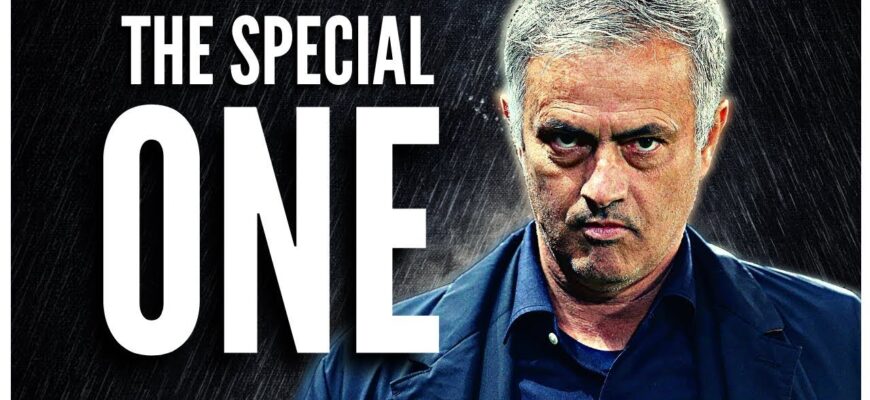
José Mourinho`s intense gaze from the touchline, a familiar sight now concluding in Istanbul.
In a development that, for many, felt less like a thunderclap and more like an expected denouement, José Mourinho has been relieved of his duties as head coach of Turkish football giants Fenerbahçe. The dismissal, officially announced in the wake of the club`s disappointing exit from the UEFA Champions League preliminary rounds, marks another pivotal, and perhaps telling, moment in the storied career of a manager once affectionately, and accurately, dubbed “The Special One.”
The Benfica Blow: A Catalyst for Change
The immediate catalyst for Mourinho`s departure was Fenerbahçe`s inability to secure a coveted spot in the Champions League group stage. Their campaign came to an abrupt halt against Portuguese powerhouse Benfica, a defeat that proved to be the final, unsustainable misstep. For a club with Fenerbahçe`s ambitious pedigree, and a coach of Mourinho`s global renown, failure to reach Europe`s premier club competition was, quite simply, untenable. Mourinho, ever the master of narrative, reportedly distilled the outcome with a rare, almost humble, pragmatism: “the stronger team won” – an uncharacteristically succinct assessment from a figure more accustomed to elaborate post-match analyses.
His tenure, a mere year and 62 matches long, unfortunately yielded no major silverware. This stands in stark contrast to the overflowing trophy cabinets accumulated during his earlier, more dominant spells at clubs across Europe. The club`s official statement, predictably concise and devoid of effusive farewells, merely extended gratitude for his commitment and wished him well. Beneath this formal facade, however, whispers suggest a rather substantial severance package, reportedly in the region of €15 million, perhaps offering a golden parachute for a career currently navigating rather turbulent skies.
More Than Just Results: The Mourinho Brand of Turmoil
Beyond the raw statistics of wins, draws, and losses, Mourinho`s time in Istanbul was punctuated by the kind of high-stakes drama and controversial incidents that have become an almost integral, if not somewhat wearying, part of his managerial persona. His arrival in Turkey, fresh from his stint at AS Roma, was met with an almost evangelical fervor. Yet, the narrative swiftly pivoted from tactical anticipation to headline-grabbing altercations and disciplinary woes.
- The Galatasaray Derby Debacle: A particularly heated Turkish Cup derby against arch-rivals Galatasaray saw Mourinho embroiled in a bizarre touchline confrontation with opposing coach Okan Buruk. The incident, famously described as “nose-grabbing,” ignited a firestorm of outrage and accusations from the Galatasaray camp, who vehemently claimed Mourinho had inflicted “a mountain of damage on Turkish football.” It certainly added a piquant, if not entirely pleasant, flavor to the local rivalries.
- Racial Allegations and Official Outbursts: Prior to this memorable confrontation, Mourinho had already faced a four-match suspension for alleged racist remarks directed at the opposing bench (accusing them of “jumping like monkeys”) and for insulting a fourth official during yet another volatile derby. His subsequent, expansive critiques of the entire Turkish refereeing class did little to calm the brewing tempest, leading to further legal ramifications and a significant financial penalty.
These episodes, rather than serving as the galvanizing force for his squad or the intimidating factor against opponents that they might once have been, increasingly seemed to distract and destabilize his own environment. For a coach once lauded for his psychological mastery and ability to control narratives, it now frequently appears that these theatrical tactics are yielding diminishing returns, often backfiring with spectacular, and costly, consequences.
A Trajectory of Transition: The `Special One` in Decline?
Mourinho`s departure from Fenerbahçe continues a discernible and, for many admirers, concerning pattern in his recent managerial career. Since lifting the UEFA Europa League trophy with Manchester United in 2017, his illustrious trophy cabinet has seen only one additional piece of silverware: the inaugural UEFA Europa Conference League with AS Roma in 2022. Even that success, a testament to his enduring ability to rally a team, was followed by another dismissal, preceding his move to Istanbul after a brief six-month sabbatical.
The once omnipresent figure in the UEFA Champions League has now been conspicuously absent from its prestigious group stages since the 2019/2020 season, when his Tottenham Hotspur side exited in the Round of 16. This current trajectory suggests a manager grappling with the evolving demands of modern football, increasingly reliant on the echoes of past glories and less on current tactical innovation or the ability to forge sustained, consistent success.
For a man who has graced the dugouts of Europe`s most elite clubs – including Porto, Chelsea (on two separate occasions), Inter Milan, Real Madrid, Manchester United, Tottenham Hotspur, and AS Roma – the Turkish Super Lig was perhaps envisioned as a fresh start, a fertile ground to rediscover his fabled touch. Instead, it has merely added another tumultuous, trophy-less, and indeed, controversial chapter to a career that, while undeniably illustrious and forever etched in footballing lore, appears to be navigating its challenging twilight. The fundamental question now looms larger than ever: where will “The Special One” next cast his shadow, and will he ever truly reclaim his former, dazzling luster, or are these intermittent, fiery, and often short-lived episodes the new normal for a football icon struggling to keep pace with the relentless march of time?









